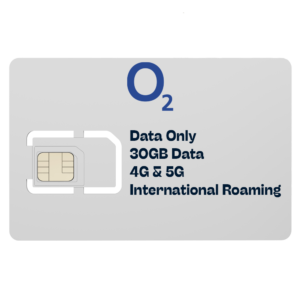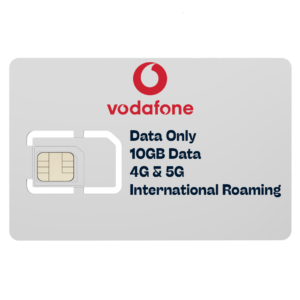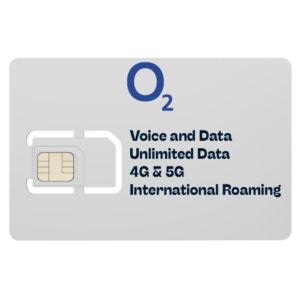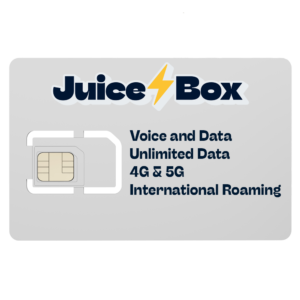Business has gone mobile. Workers need more data. They make video calls on trains. They use apps in remote places. Today’s workers need internet all the time. This has led to more unlimited data business SIM cards. Companies promise “endless” data for a fixed monthly fee.
But are unlimited data business SIM cards worth it? Many companies feel torn. They want peace of mind with unlimited plans. But they worry about paying for data they won’t use. The truth is more complex than sales pitches suggest.
This guide looks at unlimited data business mobile plans. We’ll see when these plans make sense. We’ll also see when they cost too much. You’ll learn how to pick the right option for your company.
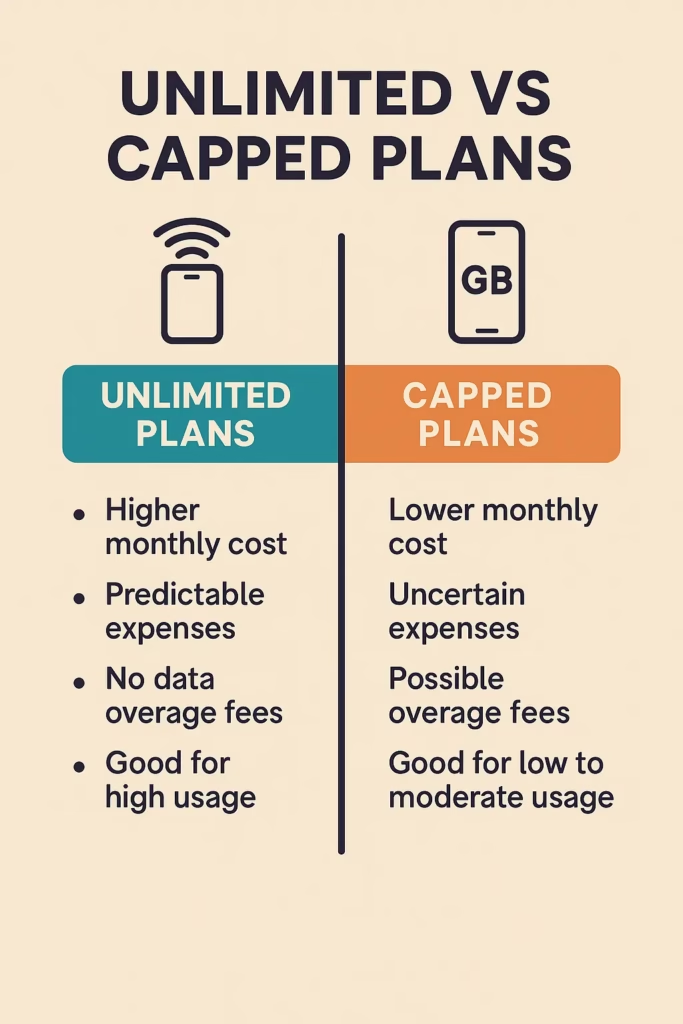
What Are Unlimited Data Business SIM Cards?
Unlimited data business SIM cards promise endless mobile internet. You pay a fixed monthly cost. But “unlimited” rarely means what people think.
Most unlimited data plans use fair usage rules. You can use lots of data until you hit a limit. This limit is usually 20GB to 100GB per month. Once you hit this cap, your speeds slow down. Your fast connection becomes much slower. Some companies are clear about these limits. Others hide them in small print.
Business plans differ from consumer plans. Business plans often give you priority data access. Your internet gets handled first during busy times. You get multiple SIM cards under one account. You can share data across team members. Customer support is better too.
Here’s the key point: “unlimited” means “very generous limits with some rules.” Smart businesses check details before signing up.
Benefits of Unlimited Data for Businesses
Unlimited data business SIM cards offer predictable costs. Fixed monthly costs make budgeting easy. You don’t worry about surprise bills. This happens when workers download large files or stream videos. This certainty helps small businesses on tight budgets.
Unlimited plans stop bill shock. This happens when workers use more data than expected. This matters for businesses where data usage is hard to predict. Instead of strict usage rules, unlimited plans let workers work freely. They don’t need to check their data usage constantly.
These plans work great for remote work. This has become more common recently. Workers in coffee shops can rely on their mobile connection. Client sites often have poor Wi-Fi. Home offices sometimes have unreliable internet. Field teams in construction, logistics, and sales need unlimited data. They access real-time information. They update systems. They stay in touch with headquarters.
Some industries naturally need unlimited data. Logistics companies need constant GPS tracking. They need route planning. Sales teams access cloud-based systems. They do video calls with prospects. Construction sites often lack reliable Wi-Fi. Mobile data becomes the main connection. Tech startups find unlimited plans support flexible working. You also get to keep your number.
Consulting firms are another good example. Consultants work from client offices. Wi-Fi access may be limited there. They need to access company resources. They share large presentations. They join video conferences. Not worrying about data limits boosts productivity.
-

02 30 GB Data
£19.45 – £21.45Price range: £19.45 through £21.45 Select options This product has multiple variants. The options may be chosen on the product page -

Vodafone 10GB Data
£16.95 – £18.95Price range: £16.95 through £18.95 Select options This product has multiple variants. The options may be chosen on the product page
The Downsides & Hidden Costs
Unlimited data plans cost more than capped plans. Some businesses have workers who mainly work from offices. These offices have good Wi-Fi. For these businesses, extra cost might be poor value. The cost difference can be big. Unlimited plans often cost 50-100% more than capped plans.
Fair usage rules are the biggest hidden problem. Many businesses learn too late. Their “unlimited” plan becomes nearly useless. This happens once they exceed the fair usage limit. Slow speeds might work for basic email. They work for messaging. But they’re not good for video calls. They’re not good for large file transfers. They’re not good for data-heavy business apps.
Not every worker needs unlimited data. Many business plans require the same offering for all lines. A company might have field sales reps. These reps really need unlimited access. The same company might have office workers. These workers barely use 2GB monthly. This approach can lead to big overspending on unused data.
Unlimited plans can create wasteful behaviour. Workers know they have unlimited access. They’re less likely to look for Wi-Fi connections. They’re less careful about usage patterns. This puts strain on cellular networks. It reduces performance for everyone.
Some companies lock businesses into long contracts. This reduces flexibility as company needs change. Early exit fees can be high. This makes it hard to adapt to changing needs. It makes it hard to get better deals from competitors.
International usage is another problem. Some unlimited plans include international roaming. Others charge high rates for overseas usage. This can lead to shocking bills for global businesses.
When Unlimited Data Makes Sense (Use Cases)
Unlimited data becomes valuable for high usage businesses. These businesses would regularly exceed generous capped plans. Companies doing frequent video conferencing find unlimited plans cost-effective. This is especially true for high-definition services. They avoid paying extra charges repeatedly.
Teams that are always mobile are ideal candidates. Sales reps visit multiple clients daily. They need unrestricted access. Delivery drivers use GPS. They update delivery systems. Field service technicians access technical manuals. They use diagnostic tools. All need unlimited data.
International operations create good use cases. This is especially true when unlimited plans include generous roaming. Companies have workers frequently traveling between countries. They can avoid complex international data management. They avoid expensive roaming charges.
Bring-Your-Own-Device policies work well with unlimited data plans. Workers use personal devices for business. It’s hard to monitor and control usage patterns. Unlimited plans remove the risk. Workers won’t exceed limits while doing legitimate business activities.
Businesses in areas with unreliable broadband find unlimited mobile data essential. Rural construction companies need it. Agricultural operations need it. Businesses in developing markets often rely on mobile data. It becomes their main internet connection.
Companies with seasonal usage spikes might find unlimited plans valuable. Marketing agencies launch major campaigns. Accounting firms get busy during tax season. Retailers get busy during holidays. They get unrestricted access during peak demand. They don’t need to temporarily change plans.

Cost Comparison Example
Let’s look at a 10-person consulting company. They’re checking their mobile data options. Their current plan gives 20GB per line. It costs £25 monthly per SIM. This totals £3,000 yearly. But they regularly exceed these limits. They pay an extra £800 in charges throughout the year.
An unlimited plan from the same company costs £40 per line monthly. This totals £4,800 yearly. This looks much more expensive. But the comparison gets more complex. You need to consider hidden costs and productivity impacts.
The capped plan’s true cost includes overages. It totals £3,800 yearly. This makes the unlimited option only £1,000 more expensive. However, the capped plan needs admin work. Staff must monitor usage. They must set controls. They must manage overage billing. This takes about 2 hours monthly. At £50 hourly rate, this adds £1,200 in hidden costs.
Productivity losses also happen. Workers approach their data limits. They start restricting their usage. Say this results in 30 minutes of reduced productivity per worker monthly. Value this at £40 per hour. The opportunity cost reaches £2,400 yearly.
When you factor in all costs, the unlimited plan provides better value. It also removes admin hassle. It removes productivity limits. This shows why you need full cost analysis. Don’t just compare simple prices.
Key Questions to Ask Before Choosing
Before getting unlimited data plans, businesses should check their actual needs:
How much data do your workers currently use monthly? Review several months of usage data. Look for patterns and peak periods. Many businesses overestimate their data needs. They base estimates on worst-case scenarios rather than typical usage.
Is your company’s unlimited plan genuinely unlimited? Or does it have fair usage rules? Ask for specific details about throttling limits. Ask about speed reductions. Ask about any other limits that might impact business operations.
Does your industry genuinely require heavy mobile data usage? Office-based businesses with reliable Wi-Fi might find unlimited plans unnecessary. Field-based operations often justify the extra cost.
Can you negotiate volume discounts? Can you get mixed plans? Some companies offer flexibility. They combine unlimited and capped plans within the same business account. This optimizes costs based on individual worker needs.
How important is network priority during peak times? Business unlimited plans often include priority access. This can be crucial for time-sensitive operations.
-

O2 Unlimited Data
£22.45 – £24.45Price range: £22.45 through £24.45 Select options This product has multiple variants. The options may be chosen on the product page -
Sale!

Juice Box Unlimited Data
£14.00 – £15.00Price range: £14.00 through £15.00 Select options This product has multiple variants. The options may be chosen on the product page
Conclusion & Call to Action
Unlimited data business SIM cards aren’t good for everyone. But they’re valuable for the right companies. Businesses with genuinely high mobile data consumption benefit. So do field-based operations. Companies with unpredictable usage patterns benefit too. These often find unlimited plans provide cost savings and operational simplicity. However, office-based companies with reliable Wi-Fi might be paying extra for capacity they’ll never use.
The key is honest assessment rather than assumption. Check your current usage patterns. Consider your industry needs. Factor in hidden costs like admin time and productivity impacts. Remember that the cheapest option isn’t always the most cost-effective. You need to account for total cost of ownership.
Don’t make this decision alone. Mobile data needs change rapidly. Pricing structures change rapidly. Available technologies change rapidly. Expert guidance is valuable. It helps you navigate options and secure the best deals.
Frequently Asked Questions
Are unlimited business SIMs really unlimited?
Most unlimited plans include fair usage rules. These have soft caps. They typically range from 20GB to 100GB monthly. After reaching these limits, speeds may be reduced. But data access continues.
What happens if you exceed fair usage on unlimited plans?
Speed throttling is the most common result. This reduces your connection speed significantly. But you maintain basic connectivity for email and messaging.
Can you share unlimited data across multiple workers?
Many business plans offer pooled data allowances. This allows teams to share total data allocations. They share across multiple SIM cards within the same account.
How do international roaming charges work with unlimited plans?
Coverage varies significantly between companies. Some include generous international allowances. Others charge premium rates for overseas usage. This happens regardless of your domestic unlimited plan.

